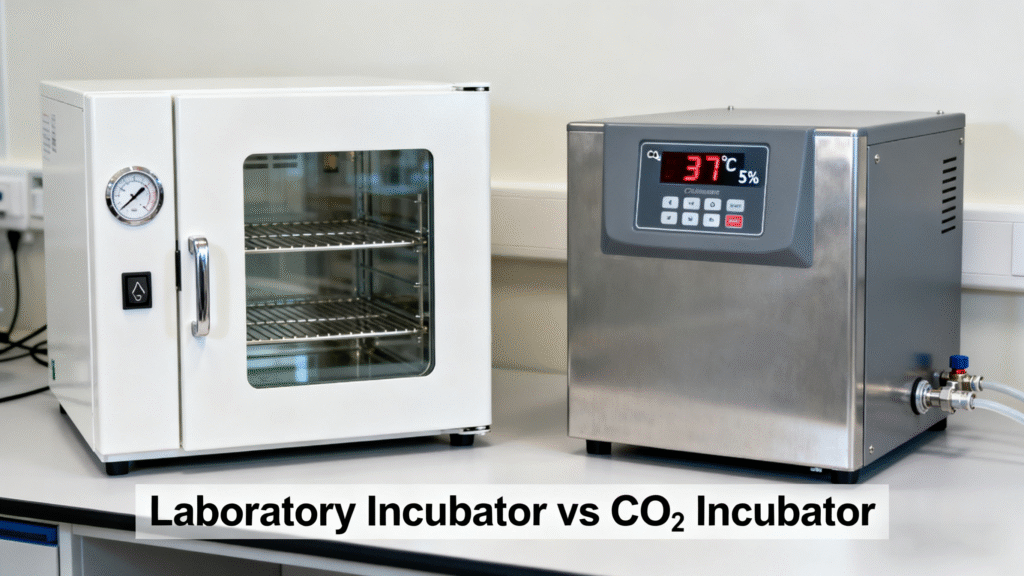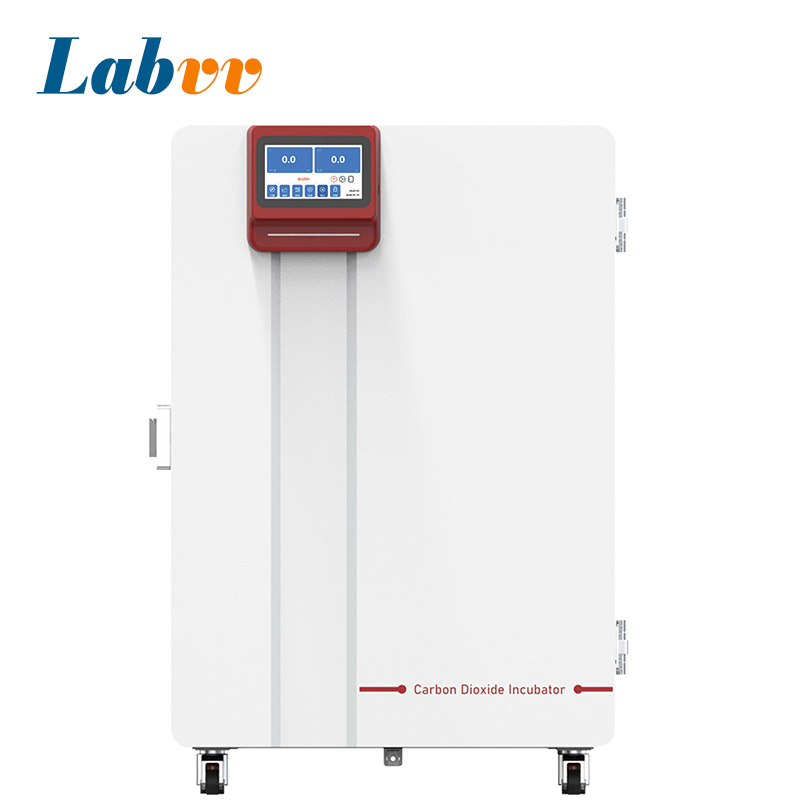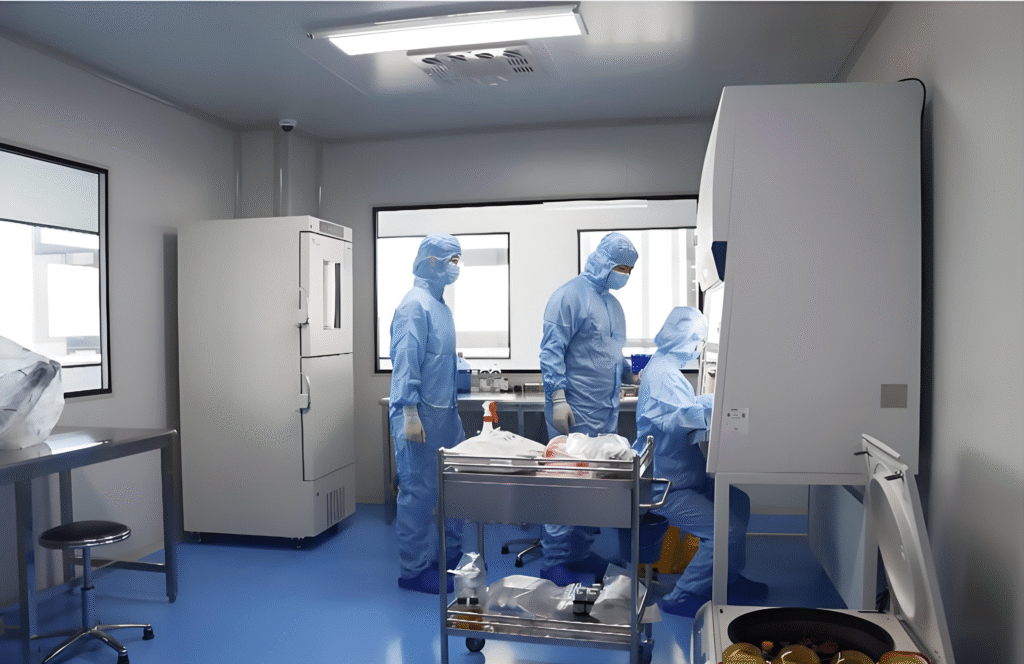Laboratory Incubator vs CO₂ Incubator: What’s the Difference?
Laboratory incubators are essential tools in scientific research, providing controlled environments for the growth of microorganisms, cells, and other biological samples. They are available in various configurations, designed to meet the specific needs of researchers and laboratory technicians. Two of the most commonly used types of incubators in laboratories are the general laboratory incubator and the CO₂ incubator. Although both serve the purpose of nurturing biological samples, they differ significantly in their capabilities and specialized applications.
Understanding these differences is crucial when selecting the right equipment for your lab.
A certified technician operates under a biosafety cabinet in a GMP stem cell laboratory equipped with advanced cell preparation, culture, and testing systems.

What is a Laboratory Incubator?
A laboratory incubator is a device that maintains a stable environment for cultivating biological cultures, cells, and other living organisms. It is designed to regulate temperature, humidity, and airflow to provide an optimal growth environment for samples. Because of its broad temperature range, typically from 5°C to 60°C, it can be used for various applications in microbiology, cell biology, and biochemistry.
Key features of a standard laboratory incubator include:
- Temperature Control: Precise regulation of temperature, often within ±0.1°C.
- Humidity Control: Some incubators include humidity control, although this feature is not always standard.
- Air Circulation: Many models include fans to ensure uniform temperature distribution.
These incubators are ideal for general applications, such as bacterial culture, enzyme incubation, and plant tissue culturing, where the environment does not require specific gas concentrations.
Therefore, laboratory incubators are widely used in routine research and standard biological testing workflows.
What is a CO₂ Incubator?
A CO₂ incubator, on the other hand, is a specialized type of laboratory incubator designed for applications that require a controlled gas atmosphere—particularly an environment enriched with carbon dioxide. This makes them indispensable in cell culture and tissue culture research.
Because mammalian cells are highly sensitive to changes in pH, CO₂ regulation helps maintain stability in the bicarbonate buffer system of the culture medium.
Key features of a CO₂ incubator include:
- CO₂ Control: Maintains a constant CO₂ concentration, typically from 5% to 10%.
- Temperature Control: Provides stable temperatures, usually around 37°C—ideal for mammalian cell growth.
- Humidity Control: High humidity to prevent evaporation of culture media.
- HEPA Filtration: Ensures a sterile environment by removing airborne contaminants.
For this reason, CO₂ incubators are essential for research involving cell lines, stem cells, and tissue engineering, where both sterility and atmospheric precision directly affect cell viability and experimental outcomes.
Moreover, the LABVV CO₂ Incubator Series (BX-100C / BX-180C / BX-260C) offers advanced features such as automatic 90°C high-humidity sterilization, ensuring consistent and contamination-free operation.

Key Differences Between Laboratory Incubators and CO₂ Incubators
| Feature | Laboratory Incubator | CO₂ Incubator |
|---|---|---|
| Primary Use | General biological research | Cell culture and tissue culture |
| CO₂ Control | None | 5–10% CO₂ regulation |
| Temperature Range | 5°C to 60°C | Typically 37°C |
| Humidity Control | Optional | Standard high humidity |
| Airflow | Fan-forced | HEPA filtration |
| Applications | Bacteria, enzymes, plant tissues | Mammalian cells, stem cells, tissues |
As shown above, the primary distinction lies in atmospheric requirements.
A laboratory incubator focuses on temperature stability, whereas a CO₂ incubator emphasizes precise environmental control necessary for sensitive cell cultures.
Which One Should You Choose?
Choosing between a general laboratory incubator and a CO₂ incubator depends entirely on the nature of your research.
- If your work involves microbial cultures, enzyme reactions, or general biological studies, a standard laboratory incubator is more than sufficient.
- However, if your experiments involve mammalian cells, stem cells, or tissue engineering, then a CO₂ incubator becomes essential because the cells require a CO₂-enriched, humidified, and sterile atmosphere to survive and proliferate.
Therefore, your application determines the ideal incubator type.

Need Assistance?
If you’re looking for the right incubator for your laboratory, Labvv offers a wide range of laboratory equipment, including both standard and CO₂ incubators, to meet your research needs.
👉 Contact us: https://labvv.com/labvv-contact-us/
👉 WhatsApp: https://wa.me/8613560386440
We’re here to help you choose the most suitable equipment for your laboratory.
